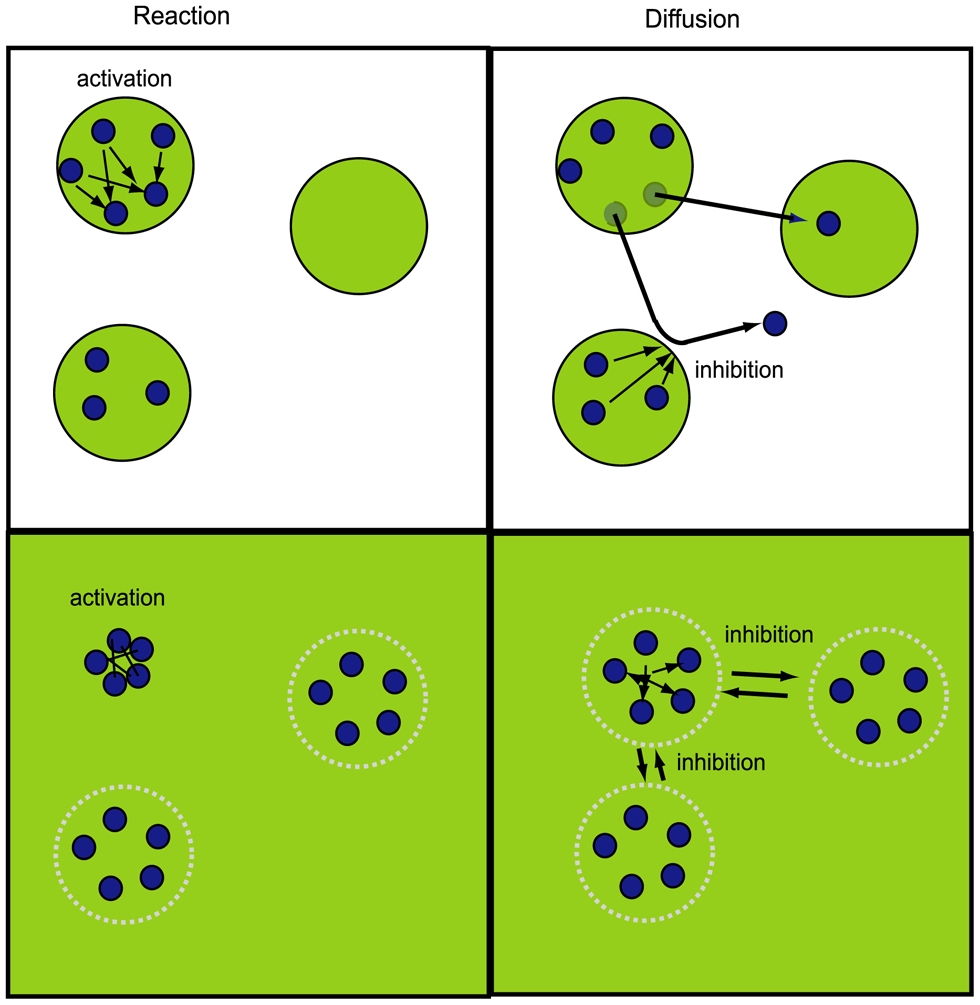Metacommunities or self organization principles
Published:
I am thinking of writing in Spanish, because Spanish is my mother language, but there seem to be not much people writing about ecological science in Spanish. At the end I started to think in English and then write in English, so the next one should be in Spanish, who knows.
I have a sensation about metacommunity theory, it divides things too much. Each of the concepts in the following image try to keep different processes in its own box.

The metacomunity concepts from Logue et al. (2011). NM: Neutral Model, PD: Patch Dynamics, ME: Mass Effect, and SS: Species-Sorting.’
But everything is intermingled in nature and when you try, and you have to try hard, to separate processes, and this is the way that our mind works, you end up with a headache. I think it is nice to have different, clearly drawn, separated and independent things, just like ingredients to cook your own metacommunity. But when you start to work with them you realize that everything is interconnected or worse it is interdependent. Logue et al. 1 think in the same way saying that “this classification is not directly operational because it is difficult to link mechanisms to a single paradigm and because natural assemblages are structured by a combination of processes ascribed to different paradigms”
This is why I like the neutral theory of biodiversity 2, there is a citation of Hubbell in each post of my blog, I think I like it. Species or mechanisms related to biology of the species doesn’t matter here, is the same if you have any “entity” that follows the basic assumptions 2. You have the belief that everything is connected through a couple of numbers like $\Theta$ that controls all, you can sit turn the knob to a desired $\Theta$ number and watch the community. But it is not like that because community assembly is not well described by neutral theory.
Thus self organization comes to rescue. Why self organization is interesting? 3 Because it searches for a principle, or a few principles that assemble the community as it is. This is a conceptual change, a different point of view from metacommunity and neutral theory, because they assume more or less equilibrium communities. Besides equilibrium and non-equilibrium could be a matter of scale, what we are searching in self organization are principles that transmit and connect things through scales. That is self organization principles drive community assembly connecting space, and offer opportunities to other processes to build up and feedback. So you can search for self-organization principles in your community or metacommunity but you are more or less alone, maybe you already fill alone, because you don’t have nice boxes to put different processes. This is why our mind like boxes, to not feel alone. I think I am building an interesting psychological theory here.
I read and stole the image from PEGE Journal Club, a great blog!
I have yet to discuss some points about spatial dynamics raised by Schimtz 3.

What I like from this is that generalizes patches. The problem with patch dynamics is that different species can have different patch scales, and then is difficult to integrate them all. With a self organizing principle patches will emerge or not depending on the internal dynamics and external constraints. The question is if there exist such a general set of few self-organizing principles, one of these would be the activation-inhibition mentioned by Schmitz 3.
References
Logue, J.B., Mouquet, N., Peter, H., Hillebrand, H., 2011. Empirical approaches to metacommunities: a review and comparison with theory. Trends Ecol. Evol. 26, 482–491. ↩
Hubbell SP (2005) Neutral theory in community ecology and the hypothesis of functional equivalence. Funct Ecol 19: 166–172. doi:10.1111/j.0269-8463.2005.00965.x. ↩ ↩2
Schmitz OJ (2010) Spatial Dynamics and Ecosystem Functioning. PLoS Biol 8(5): e1000378. doi:10.1371/journal.pbio.1000378 http://www.plosbiology.org/article/info%3Adoi%2F10.1371%2Fjournal.pbio.1000378 ↩ ↩2 ↩3


Leave a Comment